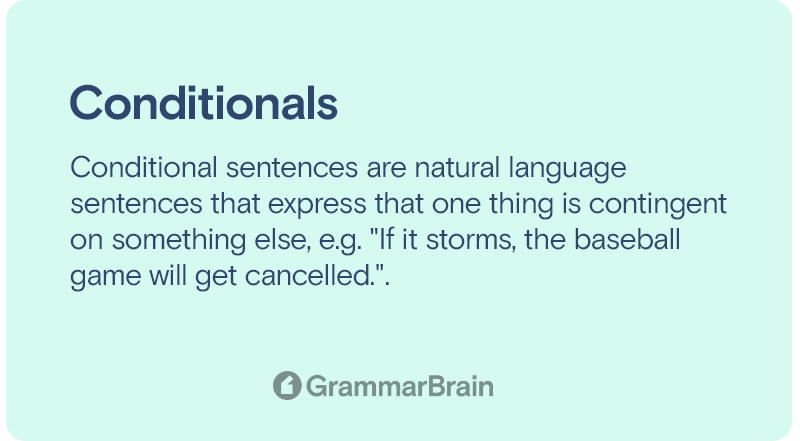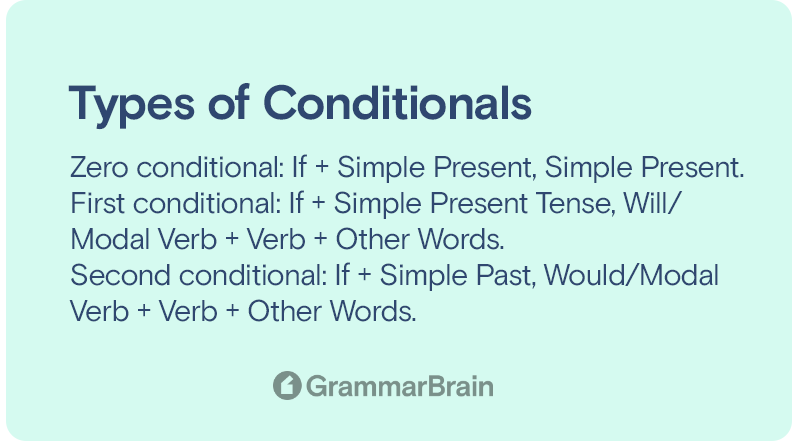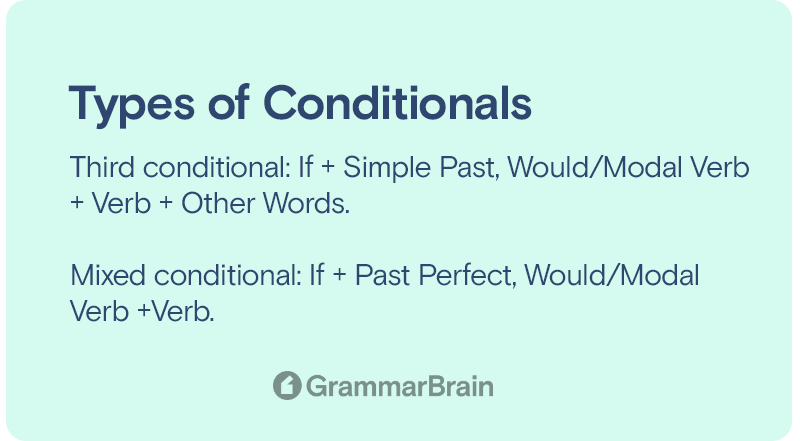What is the second conditional? How does it work? Conditionals are an important part of the English language. They are an integral part of sentence formation and are of various kinds. Conditionals are of four main kinds, namely – Zero Conditional, First Conditional, Second Conditional, and Third Conditional. In this piece, we will discuss the Second Conditional. Conditional sentences talk about an event and the result of that event.

What is a second conditional?
To understand what a second conditional is, we must start with its definition. In the simplest terms, a second conditional refers to a sentence that is impossible or unlikely to happen. As such, a second conditional is also known as a Present Hypothetical Conditional.
A second conditional is used to refer to a hypothetical present that does not actually exist. An imaginary event or state of affairs is expressed through a second conditional. Let’s look at some examples of a second conditional to understand this better.

Examples of second conditional
Here are some examples of second conditional which will help clarify and cement the concept.
- If I were rich, I would donate all my money to a shelter home.
- If I had super powers, I would make the world a safer place.
- If I was the CEO, I would make better company policies for women.
- If I was the president of the country, I would work for equal pay for equal work.
- If I had a dog, I would spoil them silly.
- If I was not afraid of heights, I would try out rock climbing.
- If I were a chef, I would cook food from around the world.
Parts of a conditional
When it comes to conditionals, it can be clearly understood that conditionals have more than one part. Ordinarily, a conditional has two parts: A “clause” which states or mentions a condition, which forms the first part. The second part is the “result” that would have existed had the condition been met. Thus, the Condition or clause is the “if” part of the sentence, and the result is the “would” part of the sentence.
Let’s understand this through some examples:
- “If” I had more time, I “would” include exercise in my routine.
In this sentence, the “if” portion is stating a condition, and the “would” portion is stating the result. Had the condition been met, the result would have taken place.
Let’s look at some more examples:
- If I was the boss, I would not yell at my employees.
- If I had the weekend off, I would take my kid to the zoo.
- If I was younger, I would be going clubbing right now.
In all of the above sentences, you can see a hypothetical condition or state of affairs which does not currently exist. At the same time, you see a hypothetical result that may have taken place upon the completion of the condition. Thus, you can see the two parts of a second conditional in the above examples.

FAQs
What are the two uses of second conditional?
- A second conditional is used for two main purposes:
Firstly they are used in present hypothetical situations, which are unlikely or impossible to happen.
Secondly, they are used in future hypothetical situations which are unlikely or impossible to happen.
What is 2nd conditional tense?
A second conditional is only applicable to present or future situations which are impossible or highly unlikely to happen. Thus, present and future tense are applied.
What is a second conditional question?
Second conditional questions, like second conditional statements, are questions about a hypothetical situation. For instance, here are some examples of second conditional questions:
- If you could, what would be one thing you would change about me?
- If you could be anyone in the world, who would you like to be?
- If you could meet anyone right now, who would it be?
Are second conditional sentences common?
First conditional sentences are more common. A conditional sentence, in itself, is very common in the English language. It is usually the past form of something referred to. This is used with modal verbs, the subjunctive mood, and a main clause/main verb.
Sources
- Conditionals 1: British Council
- The Second Conditional: Wall Street English
- Second Conditional: English Club
- English Grammar: Second Conditional- ESLBase
Inside this article
Fact checked:
Content is rigorously reviewed by a team of qualified and experienced fact checkers. Fact checkers review articles for factual accuracy, relevance, and timeliness. Learn more.
Core lessons
Glossary
- Abstract Noun
- Accusative Case
- Anecdote
- Antonym
- Active Sentence
- Adverb
- Adjective
- Allegory
- Alliteration
- Adjective Clause
- Adjective Phrase
- Ampersand
- Anastrophe
- Adverbial Clause
- Appositive Phrase
- Clause
- Compound Adjective
- Complex Sentence
- Compound Words
- Compound Predicate
- Common Noun
- Comparative Adjective
- Comparative and Superlative
- Compound Noun
- Compound Subject
- Compound Sentence
- Copular Verb
- Collective Noun
- Colloquialism
- Conciseness
- Consonance
- Conditional
- Concrete Noun
- Conjunction
- Conjugation
- Conditional Sentence
- Comma Splice
- Correlative Conjunction
- Coordinating Conjunction
- Coordinate Adjective
- Cumulative Adjective
- Dative Case
- Determiner
- Declarative Sentence
- Declarative Statement
- Direct Object Pronoun
- Direct Object
- Diction
- Diphthong
- Dangling Modifier
- Demonstrative Pronoun
- Demonstrative Adjective
- Direct Characterization
- Definite Article
- Doublespeak
- False Dilemma Fallacy
- Future Perfect Progressive
- Future Simple
- Future Perfect Continuous
- Future Perfect
- First Conditional
- Irregular Adjective
- Irregular Verb
- Imperative Sentence
- Indefinite Article
- Intransitive Verb
- Introductory Phrase
- Indefinite Pronoun
- Indirect Characterization
- Interrogative Sentence
- Intensive Pronoun
- Inanimate Object
- Indefinite Tense
- Infinitive Phrase
- Interjection
- Intensifier
- Infinitive
- Indicative Mood
- Participle
- Parallelism
- Prepositional Phrase
- Past Simple Tense
- Past Continuous Tense
- Past Perfect Tense
- Past Progressive Tense
- Present Simple Tense
- Present Perfect Tense
- Personal Pronoun
- Personification
- Persuasive Writing
- Parallel Structure
- Phrasal Verb
- Predicate Adjective
- Predicate Nominative
- Phonetic Language
- Plural Noun
- Punctuation
- Punctuation Marks
- Preposition
- Preposition of Place
- Parts of Speech
- Possessive Adjective
- Possessive Determiner
- Possessive Case
- Possessive Noun
- Proper Adjective
- Proper Noun
- Present Participle
- Prefix
- Predicate



